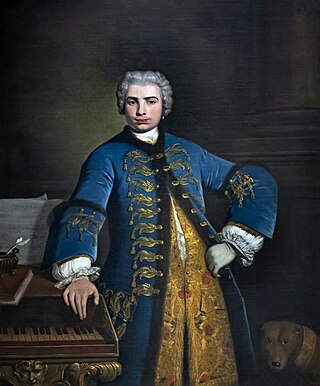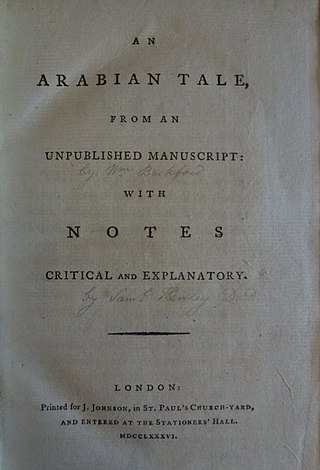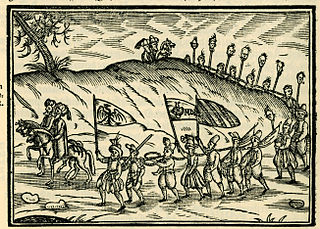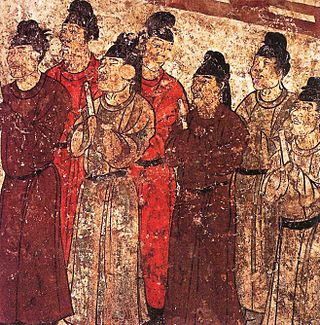This article needs additional citations for verification .(March 2020) |
Eunuchs have appeared in many films, works of literature, and in popular culture.
This article needs additional citations for verification .(March 2020) |
Eunuchs have appeared in many films, works of literature, and in popular culture.

A castrato is a male singer who underwent castration before puberty in order to retain singing voice equivalent to that of a soprano, mezzo-soprano, or contralto. The voice can also occur in one who, due to an endocrinological condition, never reaches sexual maturity.

A eunuch is a male who has been castrated. Throughout history, castration often served a specific social function.

Castration is any action, surgical, chemical, or otherwise, by which a male loses use of the testicles: the male gonad. Surgical castration is bilateral orchiectomy, while chemical castration uses pharmaceutical drugs to deactivate the testes. Castration causes sterilization ; it also greatly reduces the production of hormones, such as testosterone and estrogen. Surgical castration in animals is often called neutering.

A story within a story, also referred to as an embedded narrative, is a literary device in which a character within a story becomes the narrator of a second story. Multiple layers of stories within stories are sometimes called nested stories. A play may have a brief play within it, such as in Shakespeare's play Hamlet; a film may show the characters watching a short film; or a novel may contain a short story within the novel. A story within a story can be used in all types of narration including poems, songs, and video games.

The Topkapı Palace, or the Seraglio, is a large museum and library in the east of the Fatih district of Istanbul in Turkey. From the 1460s to the completion of Dolmabahçe Palace in 1856, it served as the administrative center of the Ottoman Empire, and was the main residence of its sultans.

Lü Buwei was a Chinese merchant and politician of the Qin state during the Warring States period. Originally an influential merchant from the Wey (衛) state, Lü Buwei met and befriended King Zhuangxiang of Qin, who was then a minor prince serving as a hostage in the Zhao state. Through bribes and machinations, Lü Buwei succeeded in helping King Zhuangxiang become the heir apparent to the Qin throne. In 249 BCE, after King Zhuangxiang ascended the throne following the death of his father, King Xiaowen, he appointed Lü Buwei as his chancellor (相國) and ennobled him as "Marquis Wenxin" (文信侯). After King Zhuangxiang's death in 247 BCE, Lü Buwei became the chancellor and regent to King Zhuangxiang's young son, Ying Zheng, who later became Qin Shi Huang.

Vathek is a Gothic novel written by William Beckford. It was composed in French beginning in 1782, and then translated into English by Reverend Samuel Henley in which form it was first published in 1786 without Beckford's name as An Arabian Tale, From an Unpublished Manuscript, claiming to be translated directly from Arabic. The first French edition, titled simply as Vathek, was published in December 1786. In the twentieth century some editions include The Episodes of Vathek, three related tales intended by Beckford to be so incorporated, but omitted from the original edition and published separately long after his death.

Harem refers to domestic spaces that are reserved for the women of the house in a Muslim family. A harem may house a man's wife or wives, their pre-pubescent male children, unmarried daughters, female domestic servants, and other unmarried female relatives. In harems of the past, slave concubines were also housed in the harem. In former times some harems were guarded by eunuchs who were allowed inside. The structure of the harem and the extent of monogamy or polygamy has varied depending on the family's personalities, socio-economic status, and local customs. Similar institutions have been common in other Mediterranean and Middle Eastern civilizations, especially among royal and upper-class families, and the term is sometimes used in other contexts. In traditional Persian residential architecture the women's quarters were known as andaruni, and in the Indian subcontinent as zenana.

Cry to Heaven is a novel by American author Anne Rice published by Alfred A. Knopf in 1982. Taking place in eighteenth-century Italy, it follows the paths of two unlikely collaborators: a Venetian noble and a maestro from Calabria, both trying to succeed in the world of the opera.
Susan Shwartz is an American author.

The Imperial Harem of the Ottoman Empire was the Ottoman sultan's harem – composed of the wives, servants, female relatives and the sultan's concubines – occupying a secluded portion (seraglio) of the Ottoman imperial household. This institution played an important social function within the Ottoman court, and wielded considerable political authority in Ottoman affairs, especially during the long period known as the Sultanate of Women.

In English-speaking popular culture, the modern pirate stereotype owes its attributes mostly to the imagined tradition of the 18th-century Caribbean pirate sailing off the Spanish Main and to such celebrated 20th-century depictions as Captain Hook and his crew in the theatrical and film versions of J. M. Barrie's children's book Peter Pan, Robert Newton's portrayal of Long John Silver in the 1950 film adaptation of the Robert Louis Stevenson novel Treasure Island, and various adaptations of the Middle Eastern pirate, Sinbad the Sailor. In these and countless other books, films, and legends, pirates are portrayed as "swashbucklers" and "plunderers". They are shown on ships, often wearing eyepatches or peg legs, having a parrot perched on their shoulder, speaking in a West Country accent, and saying phrases like "Arr, matey" and "Avast, me hearty". Pirates have retained their image through pirate-themed tourist attractions, film, toys, books and plays.

Slavery in the Ottoman Empire was a major institution and a significant part of the Ottoman Empire's economy and traditional society. The main sources of slaves were wars and politically organized enslavement expeditions in the Caucasus, Eastern Europe, Southern Europe, Southeast Europe, and Africa. It has been reported that the selling price of slaves decreased after large military operations. In Constantinople, the administrative and political center of the Ottoman Empire, about a fifth of the 16th- and 17th-century population consisted of slaves. Statistics of these centuries suggest that Istanbul's additional slave imports from the Black Sea have totaled around 2.5 million from 1453 to 1700.

Jason Goodwin is an English writer and historian.
Yang Jian was a huanguan (eunuch) and minister under Emperor Huizong of Song, best-known for implementing oppressive tax policies to increase government revenue. In subsequent works of fiction, such as the classic novels Water Margin and Jin Ping Mei, he is almost always portrayed as treacherous and corrupt.

The kizlar agha, formally the agha of the House of Felicity, was the head of the eunuchs who guarded the Ottoman Imperial Harem in Constantinople.

A eunuch is a man who has been castrated. Throughout history, castration often served a specific social function.
Bibliography of science fiction, fantasy, historical fiction and nonfiction writer Harry Turtledove: